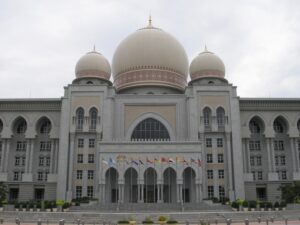Recently, the legal status of evidence obtained through questionable and improper means has been widely discussed. Can such evidence be used in a court of law by the prosecution in a trial against an accused person?
In Malaysia, the primary law that governs the admissibility of evidence is the Evidence Act 1950. Apart from that, our courts rely on common law, drawing from past judicial decisions as precedents. Also, under certain circumstances, there is legislation that contains special provisions on the admissibility of evidence depending on the objectives of said legislation.
Unlawfully obtained evidence could be summarised as a piece of evidence which was secured or obtained by an enforcement or investigative agency through questionable means, perhaps in an oppressive manner that does not comply with the provisions of the law, or even in a manner which may be a violation of one’s fundamental rights. This description is by no means exhaustive.
Generally, what is the legal position in Malaysia when it comes to unlawfully obtained evidence?
Our courts have decided, the fact that evidence was illegally obtained does not affect the question of its admissibility. This principle originated from a Privy Council decision in 1955 (see Kuruma v. The Queen [1955] 1 All ER 236).
The question posed to the Privy Council was whether the evidence, which proved that the appellant was in possession of ammunition, had been illegally obtained and should not have been admitted. Lord Goddard C. J. said that the test to be applied in considering whether evidence is admissible is whether it is relevant to the matters in issue. If it is, it is admissible and the court is not concerned with how the evidence was obtained.
This principle has been followed and reaffirmed by our courts (see Saw Kim Hai & Anor v. Regina [1956] MLJ 21, Public Prosecutor v. Seridaran [1984] 1 MLJ 141, and Dato’ Seri Anwar bin Ibrahim v. Public Prosecutor & Anor Appeal [2015] 2 ML 293).
In my opinion, the approach that our courts have adopted is anathema to the concept of fair trial and human rights, and should be criticised based on the following grounds.
It must be noted that as of the formation of Malaysia, the Federal Constitution has been the supreme law of the land. Any law which is inconsistent with the Federal Constitution is unconstitutional, or at least, should be interpreted as being inconsistent with the Federal Constitution.
It is unfortunate that the aforementioned cases did not consider the admissibility of unlawfully obtained evidence within the framework of the Federal Constitution.
In our Federal Constitution, the notion of the right to a fair trial, which stems from the principles of natural justice and the rule of law, is housed in Article 5(1) and Article 8(1) on liberty and equality.
When one speaks of the right to a fair trial, one cannot ignore the pre-trial processes or procedures, because a trial is the result of a series of pre-trial processes; this begins with the arrest of a suspect followed by investigations to collect evidence, and so forth.
Corollary to this would be the need to ensure that, when an accused person is brought before the court to be charged and tried, he or she must be tried on evidence that was obtained in a manner that did not violate any of his or her fundamental rights. In other words, he or she must not be tried on unlawfully obtained evidence.
In American jurisprudence, the doctrine of “fruit of the poisonous tree” is a well-recognised legal principle. This principle prevents the prosecution from admitting evidence into a criminal trial if the evidence has been tainted by some form of illegality.
The concept of fairness in trial had been recognised by our Federal Court in the case of Goi Ching Ang v. Public Prosecutor [1999] 1 MLJ 507 and Lee Kwan Woh v. Public Prosecutor [2009] 5 MLJ 301.
In the first case of Goi Ching Ang, in dealing with the admissibility of information given by an accused person to the police under section 27 of the Evidence Act 1950,[1] the Federal Court held that:
Fairness requires fair trial which, in turn, needs fair procedure. Fair process requires that the legitimate interests of both the prosecution and the defence are adequately provided for [emphasis added]. While the police ought to be given a reasonable opportunity to question suspects and accused persons, in its investigation, the accused must also be reasonably protected from the danger of extraction of unreliable statements and of statements (even if reliable) by some improper means. Evidence obtained in an oppressive manner by force or against the wishes of an accused person or by trick or by conduct of which the police ought not to take advantage, would operate unfairly against the accused and should in the discretion of the court be rejected for admission [emphasis added]. The court should ensure that the standards of propriety in obtaining section 27 information are scrupulously followed in the police station.
Likewise, in the second case of Lee Kwan Woh, the Federal Court in its judgment reiterated the importance for the State to act fairly and not in an oppressive manner. It held that Article 8 of the Federal Constitution guarantees fairness in all legislative, administrative and judicial actions.
Contrary to the earlier decisions, it appeared that the courts were slowly but surely moving towards a legal interpretation of the law which is consistent with international human rights principles.
Due to these developments, it was perplexing as to why in 2015, in the “Sodomy 2” case of Dato’ Seri Anwar Ibrahim, the Federal Court reverted to the regressive approach in Kuruma on the issue of unlawfully obtained evidence, instead of considering this issue in a more progressive approach as laid down in Goi Ching Ang and Lee Kwan Woh.
This then raises a pertinent question which affects all of us – if you, or someone you personally know, is facing a criminal charge and the prosecution wishes to adduce evidence which was obtained through unlawful means, what would your position be?
For me, to be consistent with international human rights norms, the proper approach that our courts ought to adopt is to reject any unlawfully obtained evidence outright. It is hypocritical and contradictory for one organ of the State, namely the court (the Judiciary), to take advantage of a breach of the law by another organ of the State, the enforcement or investigative agency (the Executive).
As far as an enforcement or investigative agency’s conduct is concerned, I strongly believe that those who enforce the law should and must obey the law. To allow an enforcement or investigative agency carte blanche as to how evidence is gathered may very well open the process to unmitigated abuse. In respect of the court, acting on evidence obtained through a breach of law or fundamental rights is an affront to the rule of law.
[1] Section 27 of the Evidence Act deals with the admissibility of a statement made by a person in police custody, regardless of whether the statement amounts to a confession or not.



